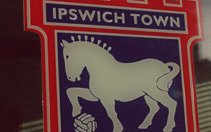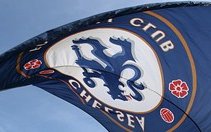The pairing of Pompey and Ipswich Town in this Saturdays FA Cup offers us a chance to re-visit some past players who did not play for one of the current premiership teams.
My first thought was to write about Ipswich legend Mick Mills. Mills, as well as being England captain, played nearly six hundred games for the ‘tractor boys’ but as Pompey released Mills before he had the opportunity to play for the first team, I found information about his time at Fratton hard to come by.
I then turned my thoughts to David Best. Pompey’s goalkeeper between 73-75 but again there wasn’t that much to actually write about. I even considered writing an article about Reg Pickett who played 123 times for Pompey between 1949 & 1957 but when I started to research him Wiki, Yahoo and Google (to name a few) all returned the same answer ‘Who?’
Eventually I settled for Kevin O’Callaghan.
For two and a half years, together with Vince Hilaire, ‘Cally’ or ‘Moaner’ formed Alan Ball’s ‘Wing Offensive’ and became formidable opposition for any full-back as they terrorised defences during Pompey’s push for promotion to ‘the old’ first division.
After narrowly missing twice in succession Pompey, thanks in part to Cally’s wing-play finally succeeded in 1986/87 and went up taking Pompey back to the top flight for the first time in nearly thirty years.
Born in Dagenham in October 1961, the talented youngster started his career as an apprentice at Millwall. Following Cally’s and ‘The Lions’ success in the FA Youth Cup in 1979 it wasn’t long before he broke into the first team, and after just a handful of senior games started to catch the eye of the ‘big teams’.
As it turned out Bobby Robson (before he was a ‘Sir’) was one of the first to notice the emerging talent of the young O’Callaghan and in January 1980 forked out £250,000 to take him to First Division high-flyers Ipswich Town.
Cally quickly established himself as part of the team that finished First Division runners-up and beaten FA Cup semi finalists but it was the following season (1980/81) despite (again) being runners-up in the title race that Cally picked up a winners medal for his part in Ipswich’s victorious UEFA Cup Final victory by beating Dutch side AZ Alkmaar 5-4 over two legs. O’Callaghan also picked up 17 of his 21 Eire caps while at Ipswich.
January 1985 saw Cally move to Pompey for £80,000 and as mentioned earlier together with Hilaire provided the crosses for Micky Quinn and Paul Mariner to convert and eventually help Pompey clinch promotion.
As it turned out, promotion cost Cally his job and despite his previous experience and after scoring 16 goals in 80 games for Pompey he was deemed not good enough to play in the First Division and in June ’85 was sold back to his first club Millwall, who themselves had designs on the top-flight, for £85,000
The Lions won promotion during Cally’s first season and ironically it was O’Callaghan himself who scored the goal that took them, the only London club never to have played in the First Division, into the top flight after 102 years of waiting. One of the teams they replaced? …Pompey!
Cally played throughout Millwall’s two year stint in Division One and throughout their subsequent decline but eventually left in July 1991 when he signed his final senior contract with Southend. He managed just 10 games scoring just once before hanging up his boots.
But for all his achievements, it was a game in which he NEVER played that most will probably remember him for. Acting as Goalkeeper Tony Lewis, Cally had his arm broken just before one of the most important matches in cinema history … The Allies v Germany … in the film classic ‘Escape to Victory’.
For those that have not seen the film, it is in my opinion, quite simply the greatest football film ever made. Not only is the storyline excellent but the films authenticity is heightened as it features a cast list which includes some World famous professional footballers (together with some not so famous, drawn from one of the more successful teams in Europe at the time: Ipswich Town).
‘Escape to Victory’ (based on the 1961 Hungarian film drama “Két félid? a pokolban” translated as ‘Two half-times in Hell’), was inspired by the true story of Dynamo Kiev’s players who defeated Nazi soldiers during the occupation of the Ukraine during World War II.
Directed by John Huston in 1981, the film is based in a Nazi POW Camp where the Allied prisoners, coached and represented by Michael Caine’s character (Captain John Colby) agree to play a football match against some local German troops, but unbeknown to the Allies, the Nazi propaganda machine goes into overdrive and they end up in occupied Paris playing the German National team.
With the Germans leading at half time, some of the Allied team (led by American soldier Robert Hatch – Sylvester Stallone) plan to escape out of the dressing room, but the rest of the team, (fronted by Ipswich’s Russell Osman), convince them to stay and carry on in the belief that they can win the game.
As with the first 45, the second half includes some great skill by the likes of Pele, Booby Moore, Kazimierz Deyna and Ozzie Ardiles and despite the referee and his linesmen being heavily biased the Nazis begin to buckle and the Allies draw level at 4-4.
As time ticks away the Nazis are denied their win by some excellent saves by Goalkeeper ‘Hatch’. Then with minutes remaining the POWs score to make it 5-4 but the goal is disallowed for a dubious offside. The intensity grows as the Germans are then awarded a penalty, which remarkably ‘Hatch’ manages to save with only seconds remaining. As the final whistle is blown the crowd who have been chanting “Victory!” since the disallowed goal, pour onto the pitch and amidst the confusion help the Allies to escape.
So there you have it. If ‘Cally’ had not had his arm broken ‘Hatch’ would have never played, never would have saved the penalty, the Allies would have lost, and therefore would not have escaped and then there wouldn’t be a film worth making.
Finally, although Cally didn’t play, he did manage to get one of the best lines in the film:
In the scene with Michael Caine, where Captain Colby explains why they need reserve keeper Hatch to play rather to Lewis (Cally) and therefore have to break his arm deliberately, Lewis says “Try and make it a clean break” – For those of you who have seen the film you know what happens next. My advice to those that haven’t is either rent it, download it or buy it, but you simply must see it – You will not be disappointed.
——————–
For info the Allied team was as follows
1. Robert Hatch (USA) (SYLVESTER STALONE)
2. Michael Fileu (Bel) (PAUL VAN HIMST)
3. Cptn John Colby (UK) (MICHAEL CAINE)
4. Pieter Van Beck (Hol) (CO PRINS)
5. Doug Clure (UK) (RUSSELL OSMAN)
6. Terry Brady (UK) (BOBBY MOORE)
7. Arthur Hayes (Sco) (JOHN WARK)
8. Carlos Rey (Arg) (OSSIE ARDILES)
9. Sid Harmor (UK) (MIKE SUMERBEE)
10. Luis Fernandez (Bra) (PELE)
11. Erik Borge (Den) (SOREN LINDSTED)
Sub: Paul Wolchek (Pol) (KAZIMARIEZ DEYNA)
Gunnar Hilsson (Nor) (HALLVAR THORESEN)
Other ‘snippets’
· Ex-Burnley player Les Shannon choreographed the actual game shown in the film.
· Pele is credited as the designer of plays.
· Gordon Banks helped coach Sylvester Stallone.
· Ipswich’s Laurie Sivell played ‘Schmidt’ The German goalkeeper
· Kevin Beattie (Ipswich) was a stunt-double for Michael Caine
· Paul Cooper (Ipswich) was a stand-in for Sylvester Stallone
· The game was filmed in the Stadion Hidegkuti Nándor in Budapest, Hungary.
· The films premiere was held at the Corn Exchange Theatre, Ipswich.
· John Wark had his only speaking line “I’ll take the top bunk” dubbed.
· Kevin O’Callaghan was credited incorrectly in the closing sequence.
Written by Chix.
To join the Vital Pompey debate – in the forum or with comments on articles – simply take a few seconds to register an account.



